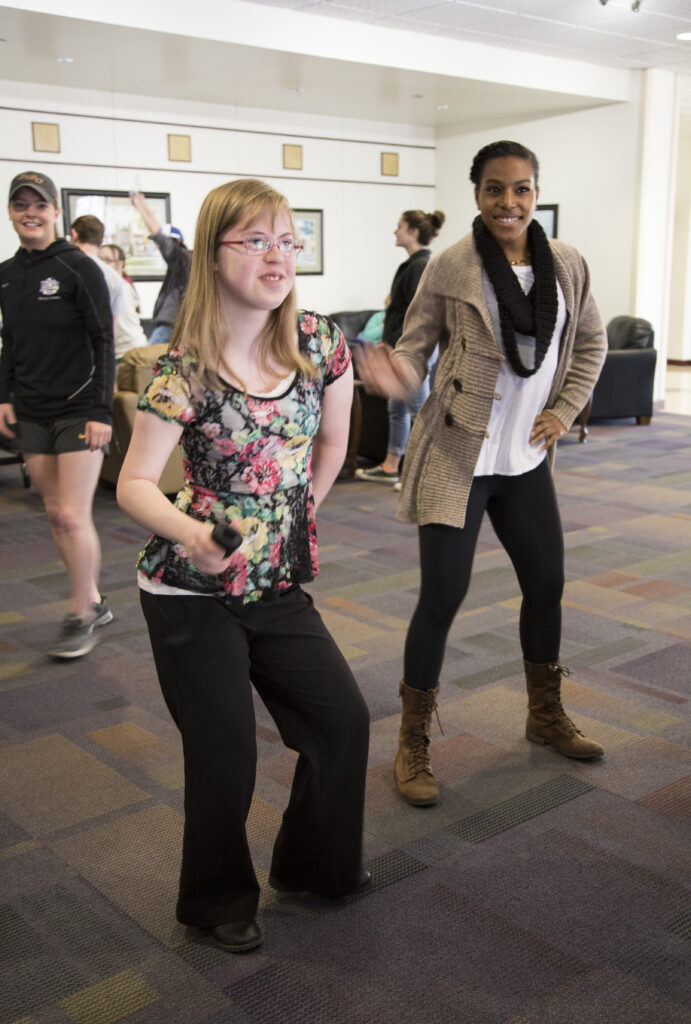Kansas Wesleyan University Sport and Exercise Science students have closed out another successful year of Rec2Realty. The program, now in its ninth year, takes a service-learning approach. Students start in the Adaptive Physical Education class, learning strategies for adapting activities for those with disabilities and special needs. They then apply that knowledge when facilitating Rec2Realty.
The program brought nine Salina South High School students to campus. First, they tried out an activity — fishing or bowling, for example — on a Nintendo Wii. Then, they tried the same activity in the real world.
“The goal is to get students to use recreational and community resources when the program is done,” Bryan Minnich, associate professor of Sport and Exercise Science, said.
Eighteen KWU students were involved in the class and had to create lesson plans and Individual Education Programs that fit the South students’ needs.
“The biggest takeaway was critical thinking skills,” Jacob Lunz, the student coordinator of Rec2Reality, said. “If something doesn’t go the way you expected, you have to figure out the solution yourself.”
Lunz explained that he was responsible for coordinating the events, making reservations, communicating with USD 305 and applying for a KWU Alumni Association grant. He is a senior who will pursue his doctorate in Physical Therapy at the University of Nebraska next year. This is his third year helping with Rec2Reality.
Both Minnich and Lunz agree that the most rewarding part of the program is seeing KWU students interact with the students from South.
“For me the fun part of the program is to see, observe, listen and read evaluations of KWU students,” Minnich said. “Students learn that these kids aren’t that different, and they are capable of doing a lot.”
“It’s different each time. Sometimes you have a Wesleyan student who is shy and not sure how to interact at first,” Lunz said. “This year we had a really shy student from South who didn’t want to dance, but we were able to draw her out so by the end she was dancing.”
The Rec2Reality program receives funding from the Greater Salina Community Foundation through its Dane G. Hansen Community Grant Fund and the Kansas Wesleyan University Alumni Association Mini-Grant Fund.


